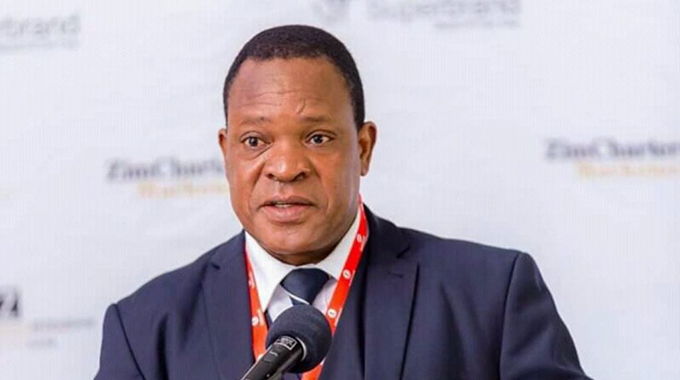Hwange 7 spotlights young Zim engineers

Africa Moyo recently in HWANGE
When President Mnangagwa called on young people to actively participate in building their country, he may not have foreseen the extent to which they are now involved in national development.
Towards the 2018 harmonised elections, the President said under his administration, youths would have key roles to play, and pledged that some would get ministerial positions.
He honoured the pledged, and a couple of young people such as Environment, Climate, Tourism and Hospitality Industry Minister Mangaliso Ndlovu, and Information Communication Technology, Postal and Courier Services Minister Dr Jenfan Muswere, were appointed into Cabinet.
Both were less than 40-years-old by the time of appointment in 2018.
President Mnangagwa has now popularised the mantra, “Nyika inovakwa nevene vayo/ Ilizwe lakhiwa ngabanikazi balo”, which has rallied many people, particularly young people, to want a stake in various spheres of the economy so they help build their country, in their own small ways.
Young people, said the President, are “partners in development”.
True to that, some youths have applied for pieces of land to engage in agriculture while others want to join the capital-intensive mining sector.
But a group of about 150 young, local engineers, working on the expansion of Hwange Power Station, has taken the mantra of building its own country to a whole new level.
The expansion project will add 600MW to the grid on completion, with Unit 7 and Unit 8 contributing 300MW each.
Unit 7 is already up and feeding electricity into the grid.
Yesterday morning, it was de-loaded for some tests and was generating 130MW.
Both males and females are part of the expansion project, with some working under the contractor, Sinohydro Corporation and Zimbabwe Power Company (ZPC).
Half the project has been completed after the synchronisation of Unit 7 with the national grid this Monday, while Unit 8 is expected to be completed in October.
The key roles played by young Zimbabwean engineers on the expansion of Hwange Power Station, have brought the spotlight on the country’s education sector, which has been unfairly criticised by armchair critics.
Project manager for the Hwange Power Station expansion project, Engineer Forbes Chanakira, was born on April 3, 1982.
He studied electrical engineering and completed his studies at the University of Zimbabwe in 2007.
He said he was humbled to be among the trailblazing young engineers working flat out to address the power deficit confronting the country.
“It is certainly overwhelming that the country has bestowed this particular responsibility on a youthful novice like me who hasn’t managed a big project before,” said Eng Chanakira.
“But because of the appetite, the zeal to support the vision of the Executive of the nation, we have managed to embark on the journey to develop this nation.
“We have managed to lead the young engineers, the young professionals that are part of this project to make sure they have that curiosity, zeal and appetite to make sure Vision 2030 is a reality.”
Under Vision 2030, the Second Republic, led by President Mnangagwa, seeks to transform Zimbabwe into an upper middle income society, with top-notch infrastructure such as roads, clinics and adequate electricity to power homes and industries.
Eng Chanakira said having young and energetic professionals, especially engineers, was critical for Zimbabwe to achieve its economic and development targets.

Young duo of engineers, consultant Engineer David Mvura (left) and Hwange Power Station expansion project manager Engineer Forbes Chanakira, in the control panels section at the plant. –
Pictures: Kudakwashe Hunda
“To be honest with you, I have observed how China has developed and I am glad that China has adopted a model fit for them. What is critical at this juncture, looking at Zimbabwe’s position, is to capacitate our engineers.
“We need to develop Research and Development (R&D) institutions wherein we send those engineers to nations that have done it before and developed, so they acquire different skills that are critical for building the nation.
“The engineers should be funded by the Government and it should be a deliberate programme funded by the country. When these engineers have been capacitated enough, they are brought back into the country and they go to the R&D institutions, reverse engineer and develop products that are appropriate to Zimbabwe,” said Eng Chanakira.
That way, he said, Zimbabwe would be able to develop products that are founded by local engineers.
“If we do that, I can assure you that these engineers will go a long way and Zimbabwe as a country, will be first in Africa to champion and challenge first world countries,” said Eng Chanakira.
For all his engineering prowess, Eng Chanakira, is charmed by agriculture and wishes to play his part in the sector.
“I will be glad to get a farm. I like agriculture so much, especially rearing livestock; your cattle, pigs, and poultry,” he said.
Probably one of the youngest full time engineers at the expansion project is Engineer Tawanda Mufundisi.
Eng Mufundisi, who does electrical protection engineering, was born in 1991.
He finished his studies at the University of Zimbabwe in 2015 and started as a trainee with Zesa in 2016 until 2018.
From 2019 to 2021, he was at the old power station and from late 2021 up to now, he has been at the power extension project.
“I feel very encouraged to be working on this particular project. We realise that this is a very critical assignment that has been bestowed on us as young engineers and it feels great to be working for our country, knowing that everyone expects good results,” said Eng Mufundisi.
Another young engineer, Eng David Mvura, also learnt at University of Zimbabwe.
He graduated in 2003 and became a graduate trainee at Zesa until 2006.
Eng Mvura then left to join South Africa’s power utility Eskom, before quitting and starting his own consulting firm, Dave Edwards Consulting.
He was praised by Zesa executive chairman Dr Sydney Gata for the role he played in providing critical knowledge on protection settings.
He described the expansion project as a great project, adding that protection settings had to be done right as they are important.
“When you buy a car, you need to insure it; so protection is the insurance that you have on your expensive assets.
“So we managed to configure all the circuits here and so far so good. I am happy that this project has succeeded. It was a lot of hard work and all is in place now,” said Eng Mvura.
As efforts to stabilise electricity supply continue, Zimbabwe was generating 898MW yesterday, with Hwange Power Station churning out 530MW, Kariba South 350MW and Munyati 18MW.
National demand stands at about 1 800MW.










Comments